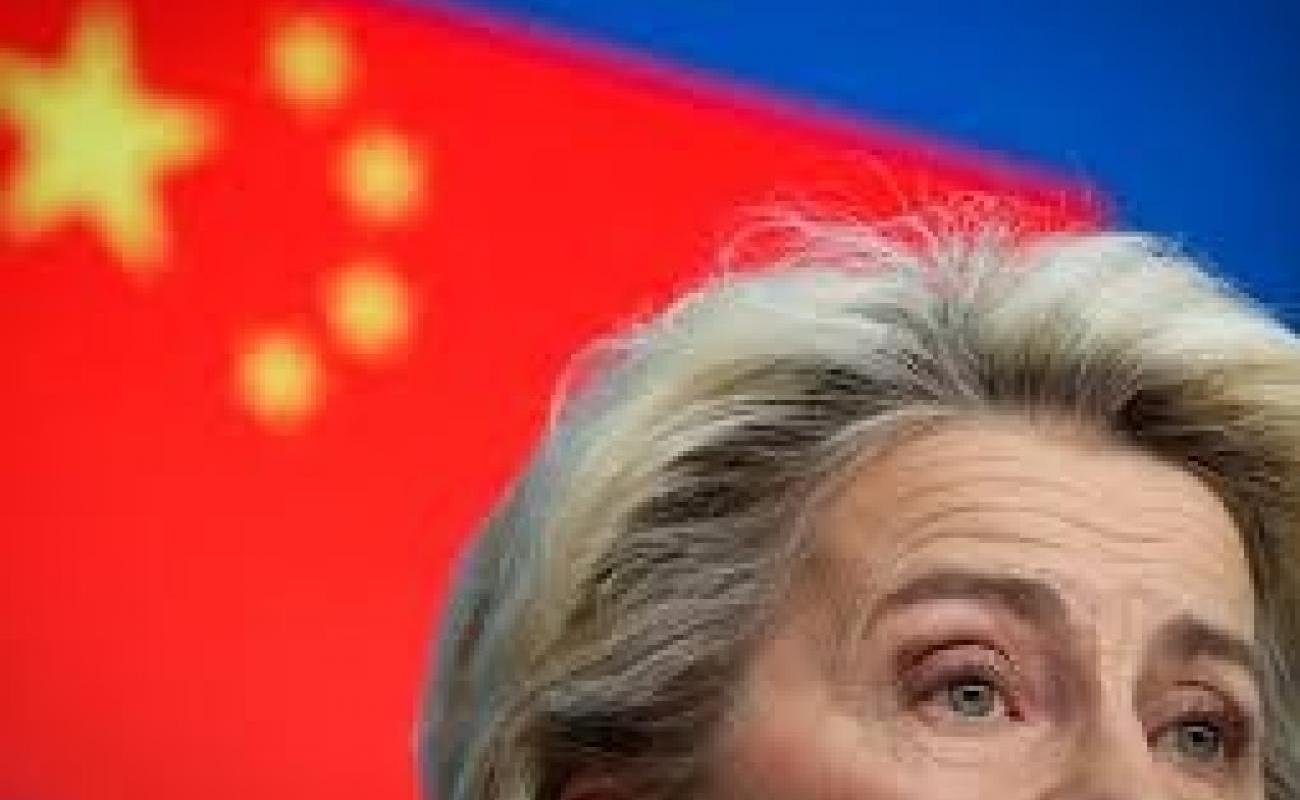WHAT IS HAPPENING TO CHINESE COMPANIES OPERATING IN THE EU? While the domestic economy is in focus, the businesses of third countries are suffering

Despite assurances that the EU does not want a trade drift away from China, Chinese companies operating in Europe say they face uncertainty about their future but continue to invest in the bloc.
Following growing concerns about trade dependence on third countries following Russia's aggression against Ukraine, European Commission President Ursula von der Leyen said in March that it was necessary for the EU to "de-risk" its relationship with China.
Although this is said to guard against a complete "uncoupling" between the Chinese and Western economies, which has been particularly discussed in the US, it does concern Chinese companies operating in Europe, according to research conducted by the China Chamber of Commerce and Industry (CCCEU) and the business consulting Roland Berger.
"Chinese companies are really concerned about the EU's de-risking strategy as well as trade barriers, and they believe that this initiative will hurt China and the EU and affect the recovery of the global economy," said Roland Berger's Yang Xiaohong, presenting research results in Tuesday (November 14).
Of the companies surveyed, 73 percent said that a "de-risking" approach had a negative impact on their business. However, 83 percent of companies say they want to expand their presence in Europe, and most expect an increase in revenue from existing operations.
Increase the market share of solar panels produced in the EU
Since announcing the "de-risking" strategy, the European Commission has unveiled a number of policies aimed at reducing dependence on China, particularly for critical raw materials and products needed for the energy transition, such as solar panels and wind turbines.
While currently around 70 percent of solar photovoltaic modules worldwide are produced in China, the EU's "Net-Zero Industry Act" proposes that the EU would produce 40 percent of the solar modules and other products needed by Europe to achieve its climate goals for itself by 2030.
To this end, the Commission proposed to allow EU countries to disadvantage products made in China in renewable energy subsidy programs as well as in public procurement, as long as this does not lead to a cost increase of more than ten percent.
The European Parliament's Industry Committee went even further, proposing that EU countries commit to partially exclude green technologies produced in China from public procurement and auctions for renewable energy.
In its proposed changes to the law, the Committee calls for a minimum share of 50 percent of green technologies originating from countries that have signed the World Trade Organization Agreement on Government Procurement (GPA), which China is not.
For example, green technology bids using mainly Chinese-made solar panels could no longer be bought in public procurement or supported by renewable energy subsidies awarded at auctions.
Parliament's position will be voted on in plenary next week before it is negotiated with member states in the so-called trilogue negotiations.
An investigation into Chinese electric vehicles
"When the EU seeks to reduce reliance on third countries for the EU's green sector and encourage domestic green industries, barriers are being put up in certain areas where Chinese companies have a competitive advantage," Yang said, citing as another example the EU's investigation into China's electric vehicles.
Chinese companies are "concerned that such measures would add uncertainty to their green plan and [...] worsen their business plan," according to the survey results, she added.
The investigation into Chinese electric vehicles (EVs) was announced by Von der Leyen during her State of the Union address in September, where she complained that global markets would be "flooded" by Chinese electric cars.
Their prices would be "artificially kept low by huge government subsidies," von der Leyen said, announcing an investigation that could lead to new tariffs, so-called countervailing duties, being imposed on Chinese electric vehicles.
When presenting the survey, the CCCEU reiterated its criticism of the investigation.
"We don't think China's electric vehicle sector is harmful to the EU market," said Liang Linlin, director of communication and research at the CCCEU.
"We are very complementary to each other," she said, adding that "Chinese and European companies also have a very deep cooperation in this regard."
